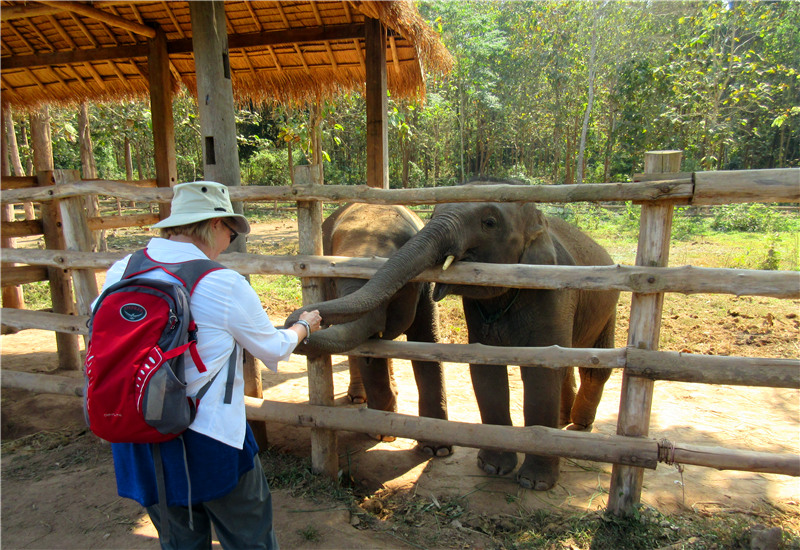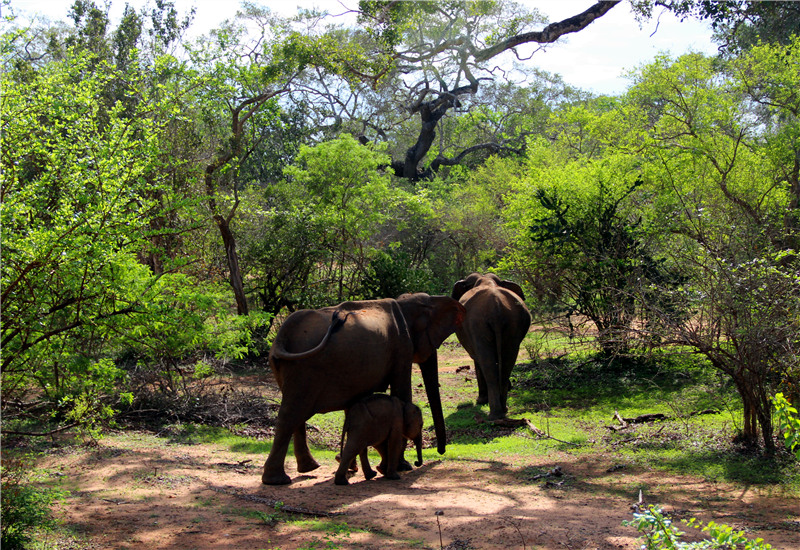Should We Ride Elephants After Knowing the Brutal Truth About It?
Riding an elephant, the largest land mammal, may be one of the must-do activities for many travelers to Asia, which has long been advertised as a wonderful experience. While there is a brutal truth involved in this activity. Here I will explain it in detail and hope it helps you make the decision on whether or not to ride an elephant anymore.
The Truth About Elephant Training and Ridding
1. Cruelty Involved in the Elephant Training
The elephants used for a ride have been trained since they were babies through an extremely cruel ancient technique called "crushing" or "training crush." The process involves separating baby elephants from their mothers, which is a truly miserable experience for these tightly-bonded animals, and restricting them to a small cage. The baby elephants suffer from starvation, dehydration, sleep deprivation, and corporal punishment, thus their minds, bodies, and spirits are broken tragically. This brutal process is accomplished when the elephants are very young.
In some country, the training crush also involves placing baby elephants in a cage and tying them with ropes to keep them from moving, thus they are unable to raise or swing their heads, or kick their legs. This is supposed to make baby elephants obey the command "Still!" or "Quiet!"
More grueling torture is the use of nails and sticks to stab into their ears and feet, and chains and bull-hooks to beat them or force them to repeat the same monotonous routines day in and day out, and make them submissive to their keepers or owners.
2. Long-Term Physical Injuries
A little-known fact is that the elephant's spine cannot support the weight of people, though they are giants. They don't have smooth, round spinal disks, but instead have sharp bones that stick out from their spines. However, elephants are sometimes made to carry up to four tourists at a time besides a mahout, which can cause severe damage to elephants' spines. In addition, chairs placed on their backs (usually not removed even during "rest" periods) can also cause rubbing and blisters.
3. Death From Overwork and Exhaustion
Most elephants have to work every day of every month in any weather, basically 365 days per year. Even in the freezing winter and sultry summer, they have to work without proper access to food and water so that tourists can have a joy ride at any time they want. Exhaustion, together with regular mistreatment, easily leads to the short life and death of elephants.
4. Wild Elephants Suffer More Agonies
With the popularity of elephant rides in recent years, the price of baby elephants has reached its highest level. Poachers, driven by interest, continually captured wild elephants using several traditional but cruel methods, like the "pit-trap" method and lethal weapons, resulting in high elephant injury and mortality rates. It is a common scene that a baby elephant is captured, with its mother and other adult elephants around it killed. These baby elephants must suffer more agonies before their spirits are broken.
Wild elephant populations have decreased significantly due to poaching, especially Asian elephants, which are now endangered.
5. Elephants Have Feelings too
In fact, elephants are very smart and are thought to be among the most intelligent animals on the planet. They socialize, have close family ties, like being with their family groups, and show signs of self-awareness. Taking baby elephants away from their mothers at a young age can be very upsetting for their minds. Long-term mistreatment may cause them to come into musth and thus gore or kill mahout or people nearby, though the chance is small.
Will you stop riding the elephant after knowing the above truth? If you love elephants, you can participate in lots of accessible activities to interact with these giants in a close but respectable way.Elephant Tourism can be Responsible
There are many options to interact with and learn about elephants in a responsible way. In many elephant sanctuaries, you can take part in lots of fun activities, like feeding them their favorite foods, bathing them in a river, going on a walk with them, or just watching them wander or play on the grass.
 Feed elephants with your own hands.
Feed elephants with your own hands.
Tracking them as they wander through the forest and observing them interacting joyfully in their natural environment are also wonderful experiences.
 Encounter elephants in their natural habitat.
Encounter elephants in their natural habitat.
As a responsible tour operator, My Odyssey Tours has stopped offering trips including elephant rides or other animal shows and activities deemed cruel for several years. Instead, we arrange more ethical and respectable ways to interact with these animals. Please contact us at trip@odynovotours.com for more information.
